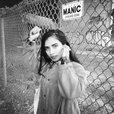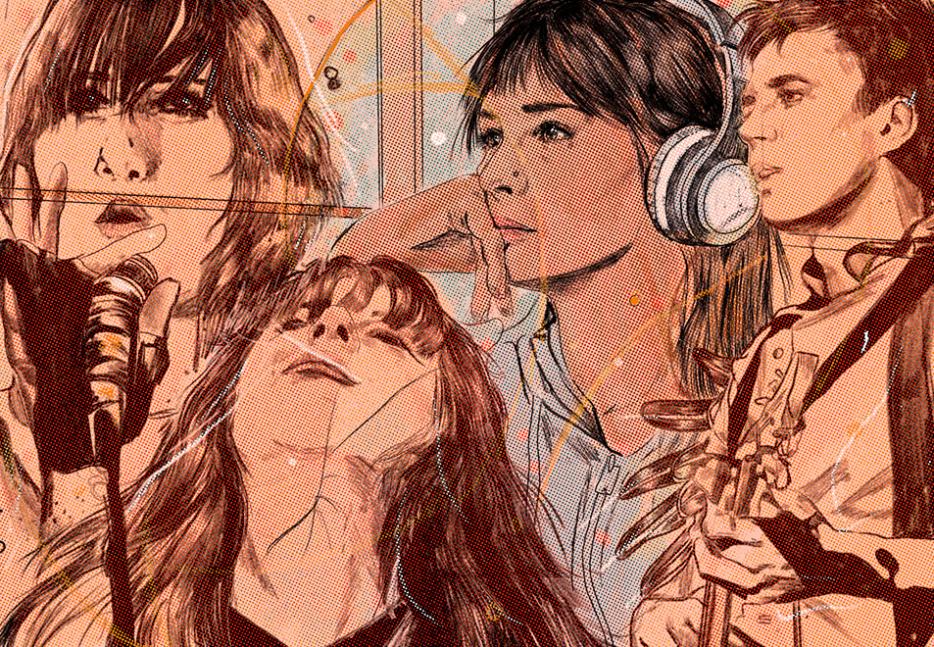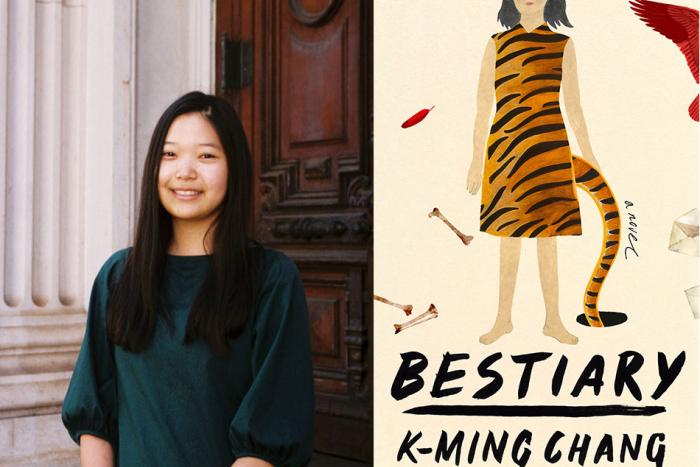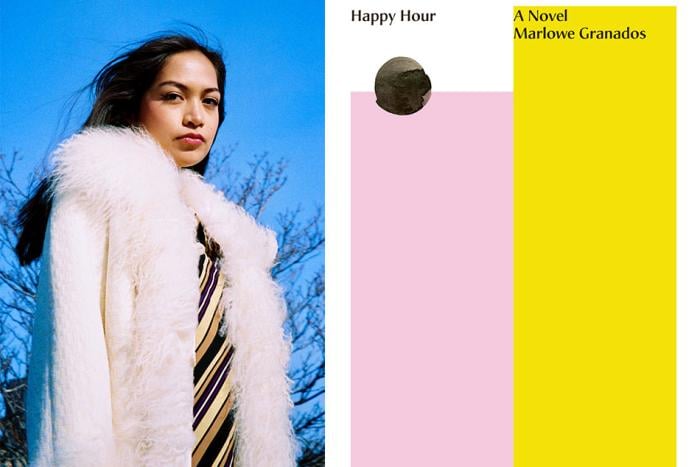I’ve been thinking a lot about my upbringing since the beginning of quarantine, returning to an old self I had once rejected as too quaint—this part of me that could be moved, and regularly was, by the culture I consumed and was consumed by.
My teens were a time of deep exploration. I figured out so many parts of myself back then, mainly by listening to the music I was raised on in the suburbs of Sydney. I clung to it as a form of catharsis from my violent homelife. Music became a vehicle of my own self-determination, a way to make my future.
I guess I’ve been trying to re-access that state, to remind myself that I’ve always been able to find inspiration for a better life, even in the darkest of times. But, those days, back in my memories, are also forever marked by a ripe melancholia, and in remembering them, I’m also accessing a self that was, in so many ways, in constant mourning.
I don’t know why teendom is laced with sadness for many of us, but interrogating that particular wound of teenagehood, the all-encompassing nature of it, has helped me regain my strength in these pandemic times. The music I listened to back then matched the pain of my reality, it became a crisis soundtrack. I had forgotten the part of me that can do this, this part of me that I abandoned as a way to adopt adulthood, to be, I assume, less sentimental. To heighten a feeling, but numb another one. That’s what I began to think survival looked like: blurring my pain in order to deal with it.
*
I would do anything to hear “Maps” again for the first time. That first stringing guitar, the slow patient build of the drums, and then that distant electric sound until Karen O’s voice appears like an apparition, a bratty sweetness, but, then, a tender plea, a lighthouse: “Wait, they don’t love you like I love you.” Again: “Wait, they don’t love you like I love you.”
I was thirteen. I remember watching and re-watching that pixelated video on YouTube, when YouTube was a weird video wasteland, doing the striking dance moves like O, imitating her shrieking silent stares. The light on her face made her look like the heroine of a PTA movie (maybe Punch-Drunk Love) and, emulating the intensity of her palpable tenderness, her grumpy cheerleader chic, my friend Janelle and I pretended we were punkstars of our own making. O was something like us, Asian. Janelle a Filipina, and me a Bangladeshi, we were outliers too.
Those days, I wasn’t allowed out. I snuck long trips into the city center, pretending I was going to work, to eat chocolate fondants and drink soy flat whites against the sleepy reservoir of Sydneysiders. The blooming streets echoed the expansion of an emerging new culture inside of me. I listened to Little Joy’s “The Next Time Around,” walking through the smell of eucalyptus and moss, or strolled along the fresh blue of the ocean listening to “Carmensita” by Devendra Banhart, or scurried along the creeks at the back of my mother’s house as I blasted “Postcards from Italy” by Beirut, avoiding the slimy leeches at my feet. I still think of the feeling, the wave of excitement I still get taking the train over the Sydney Harbor Bridge, remembering Cat Power, watching Luna Park, then the Opera House, move past me on each side as “Cross Bones Style” serenades me. I think of the Rocks and listening to “Anyone Else But You” by The Moldy Peaches, or playing “Two Weeks” by Grizzly Bear on repeat while eating a bucket of mussels at the Bavarian Bier Cafe, longing for love, forever alone.
*
My child-self learned to disassociate. It made me a master dreamer. This, I've learned, is called maladaptive daydreaming. By the time I was firmly in my teens, however, something shifted. The romanticism of music, juxtaposed against the everyday trauma of my life, began to give my feelings context. The music I was consuming made me feel less alone, and became an extension of the hollowing desire I had to be seen. I longed to feel cinematic, and music was a quick way for me to do that.
I had limited resources. Being from the suburbs with parents who couldn’t easily afford niceties, I had to dream. Everything could be an inspiration, as I had to make a life, a future of survival, out of the mundane, out of the ubiquitous. I found these moments walking down a street under the perfect golden light. In a pre-Instagram era, there was a different kind of deliberation to these cinematic moments. I craved places where I could archive myself, even if just in my own brain. I made scenes in my head to live in real life, and by executing them, I was, in my own private moments, witnessing myself.
This felt heightened for a South Asian, Muslim, queer kid. There was something significant in self-spectatorship, and it became a way to validate who I was. I felt in those days as if I was fading. Abuse does that to you, and depression definitely does that to you. When your sense of self is so lacking you require constant motivation to live, music can become a way to digest, and eventually not dissociate. To instead feel, but on my terms.
Using music as a means of articulation, I became the heroine of my own story. I felt excluded from the whiteness of these cultural worlds that I consumed, so I watched and imitated. Essentially, I started to create a reference for myself. These cinematic moments resurrected me from my rut. It was my version of experimenting. I would spend countless back-to-back days blasting myself with music, while I danced, I dressed up, I pretended to star in my own film, directed by, like, Luca Guadagnino.
*
Remember how every Saturday you’d wake up to watch cartoons? When I was a child, I would arise, obsessed with chicken, microwave twenty chicken nuggets until brown and crunchy, and watch Dexter until my sister, seven years older, would wake up and force me to watch Rage, the Australian music video show. I hated seeing Bjork appear on screen in some weird costume contraption; hated ogling at an emaciated, acid blond and cartoon-faced Daniel Johnston sing about being anorexic. I hated the seediness of the music, the darkness. There was something to the music that felt bleak, that felt dangerous.
Back then, at about eight years old, I didn’t care about anything. I was super into sports, because I was a baby dyke, confused with my body, and unsure of how to be in a gender that didn’t necessarily feel like all mine, all the time. I didn’t feel good in my body. I always felt surveilled. Or dirty. Or both. Especially around white people and East Asians. Other South Asians found me too strange, and the other Sri Lankan, Indian, Pakistani, and Bangladeshi girls in my school were always giving me unwarranted advice on how to be hotter. “Maybe don’t get more unflattering haircuts,” one told me after I gave myself lopsided baby-bangs in the 9th grade. They never quite understood, I enjoyed ugliness. I liked when I looked a little off-kilter, it felt like a better fit.
Over time, I came to see the value in the strange. My sister taught me it was better that way. There was no blueprint but her, so I followed. She’s a Pisces, twelfth house and Neptune dominant (if you know, you know) space-cadet. I first listened to the entirety of Jeff Buckley’s Grace with her. I still know that album more fluently than I know most things. Forget “Hallelujah,” have you ever heard Jeff sing “Lilac Wine?” (I drink much more than I ought to drink/Because it brings me back to yooooou.) This love of Jeff turned into a deep love of the high falsetto of a man’s voice. My sister was subliminally morphing me into someone cooler than I had the right to be. I never gave her the credit she deserves for this. I just took it, and ran with it. An entitlement of suddenly finding taste. She and I would drive around after, picking up groceries, taking the extra-long road back home, and listen to songs together. “Take Me Out” by Franz Ferdinand, “Soul Meets Body” by Death Cab for Cutie, or “These Days” by Nico. These were our sacred exchanges of freedom where we could escape the coldness of our lives, and find a world where we could live as we wished to be.
My sister, who for much of my life was my lodestar (encompassing the various possibilities of who I could be), developed an eating disorder just as I turned ten. As a way to control her own self, she veered towards me, critiquing my latent chubbiness like it was ungodly. She was moralistic, having a Catholic school education, and I believed her. It supported everything I had already been told: that I was wrong in the body I was in. Being a child of abuse also fed into this. Nothing about my own physicality felt like a reprieve—I was sexualized too young in a society that didn’t desire my charm, just the phantom of my physicality. As I looked around for support, I was again erased. I was never seen in my totality of being. This deep sense of loneliness became an identity, and something I also longed to be seen in. As in in my sadness, but, simultaneously, it became something that I wanted a voice to salve. I needed to find belonging.
So, I found it on the internet, using my top bands/songs/films as a sham call out on chatrooms, a more sophisticated demande d'amour from the A/S/L dial-up world. It was a building block for my burgeoning self-esteem, I recognized the power of finding others like me. My tastes became a litmus test to find the right community, and through my access to my internet peers—who had the same vernacular, same weird geeky conversations—I morphed into my own creation.
My internet persona was not only a deep reflection of who I was, but also who I wanted to be. It’s where a lot of us learned to become ourselves. Fast and readied pavements to our experimentation, the internet was a space to invent multiple times over, to posture, to be. But also, to learn, to expand, to create new definitions of/for ourselves, for the future selves we wanted to be. “Attract without meeting anyone’s eyes,” Shailja Patel writes in Migritude.
Using online vernacular to paint clearer conceptions, I, and a generation of weirdos like myself, talked in movie stills, movie gifs. My particular favorites were ones from In The Mood For Love and I Am Love and everything by Kiarostami. I was also on top of the music I reveled in, listening to Ryuichi Sakamoto and knowing every word to every song on The Bends by Radiohead. I knew I had taste, though none of my real-life peers in the Sydney suburbs thought so. I was taunted for wearing thrifted clothing, for my weird idiosyncratic references. But I had a different kind of bliss; I found it in learning about what I liked. That was the only agency I had.
I spent those days replaying the songs I’d heard on Triple J, the alt radio station in Australia. From there I learned about “All My Friends” by LCD Soundsystem, “L.E.S Artistes” by Santigold, “On The Radio” by Regina Spektor, and “Sheep” by Gonjasufi. These songs came soaring like solar systems of possibility into my mundane existence. The music became a lighthouse and I dreamt for a glimmering, bright, sexy future. For the one of New York, the one of sin. I longed for a life that I could claim as my own, where I was my own person, not who my parents wanted me to be. I felt the pressure of cultural assimilation, where girls like me were expected to get fancy degrees and marry cis men. I never wanted that life and I told myself I’d never succumb.
I would say I was going to school and then go down to the mall and move through the aisles of records. I had a paltry income from The Body Shop, and I would smuggle my finds home in a Jansport knock off. If my mother found the CDs, she’d get mad, so I hid everything and pretended it was all school related. I would play them on a janky CD player my father listened to Tagore renditions on before I cruelly cajoled it into my own room, robbing him of one of his only pleasures.
I would write, I would journal, but mostly, I’d lie on my bed and hope for the sun to come out, tracing the shadows against my face. My every movement was tracked by my mother. I had tight deadlines to be home, and if I wasn’t, narratives would be drawn, children would be hit. I stayed in the seams and let her dictate my actions, not knowing there was any other way.
*
Years later, almost exactly ten years, I would be sitting on my bed in Montréal, listening to Carrie and Lowell, Sufjan’s latest album. Remember the days when you listened to an album all in one go? The songs trickling into one another like gooey caramel, blending into a giant multicolored, complex portrait of a feeling? I wasn’t sure what I was doing when “Fourth of July” rolled around with a sudden punch, Sufjan’s voice laconic, mildly shrill, enchanting, “We’re all gonna dieeeeeeeee.” I’m not being hyperbolic when I say that that song helped me redeem my mother. Forgiveness is not a plateau, and five years later, she and I no longer talk, but back then my pain felt salvageable. Music did that. It made me feel grief in a way I enjoy. In a way that feels constructive. Knowing the tumultuous relationship Sufjan had with his own mother made me think of my own in a way I had forgotten to—with softness. Listening to the song, forgiveness felt possible, present—it felt near. Music is an incredible salve for impossible tasks.
Susan Sontag writes in the essay “The Benefactor,” “But I believe that the real revolutions of my time have been not changes of government or of the personnel of public institutions but revolutions of feelings and seeing, much more difficult to analyze.”
*
As COVID unleashes, the death toll in America is at two-hundred-and-sixty thousand (and maybe by the time this essay comes out, it’ll already be over that number) and yet there is no memorial in sight, not even a reminder of those deaths. What do we do with that grief? The one that usurps us all, but only some of us can name? Not everyone has the mechanics to do so.
Every time I talk to my therapist I begin the conversation by asking her how she is. Every time, she tells me about COVID, about the insanity, the sheer sadness, the crazed reckoning we are being faced with—whether death, white supremacy, or the mire of capitalism. I often think of how much I don’t know. Hearing about Chadwick Boseman’s death and how he hid his cancer, reading Jesmyn Ward's entry about her husband’s death—we are all hurting. In our own ways. Pain is universal. It’s how we cope, and how we communicate that pain—how we sublimate in hopes to cure it, to aid it—that can sometimes be miraculous. Aren’t we all living in a time of immense miracles? As Audre Lorde reflects, “I love the word survival, it always sounds to me like a promise. It makes me wonder sometimes though, how do I define the shape of my impact upon this earth?”
Music has always helped me tune myself to survival, because I listened to it as a way to mourn. We don’t talk enough about the tools you need to gain acceptance of your life. I was only able to afford therapy last year. Music was my first therapy.
Quarantine, though difficult for a multitude of reasons, was in a way another reminder of the times when I had to find vision in a liminal space. In a dark and gloomy place, I found myself. I invented, I conceptualized, and then I formed fully under the light of my own gaze. A reflection I gathered from music. Memory—if anything—is a token. By returning to these moments of my old teen-self, I am able to create a firmer passage of knowledge and understanding about surviving. In these last few months, it’s helped initiate me from one moment to the next, to become my own self-tracking device; a how-to guide on how I came into being. It’s been useful to remember, to listen, and to trust that things always work out. It just usually means that you have to let go of what you think “working out” meant.
*
My favorite movie is Eternal Sunshine of the Spotless Mind. I’ve watched it countless times. I always felt like Joel, Jim Carrey's character. Lovesick, grossly earnest, needing to be seen in my shy corner. The song I always think of when I think of this era of myself is “Everybody’s Gotta Learn Sometime” by Beck. It’s melancholic, loaded with meaning. "Everybody’s gotta learn sometimes" could sound less like a threat if we looked at it like an oracle. The funny thing is, the movie is also about reckoning with uncomfortable memories. A moral question about all the things we perhaps shouldn’t erase, even if we could. It’s as if Charlie Kaufman asks: how can we account for the time that, though difficult, provided us with a sublime realness? Isn’t there power in that? What if we looked at all that can be gained from these moments life hands us and what if we didn’t resist?
That’s another thing I’ve been thinking about. I’ve rarely known what was truly good for me, and instead, I’ve fallen into lapses of depression, the trappings of sadness locked in my mind. The good thing is, the older I get, the more I realize it’s not about disassociating. It’s about accepting. “We don’t create a fantasy world to escape reality, we create it to be able to stay,” writes Lynda Barry, author of What It Is. I think about that with the soundtrack, of the way music guides us into staying with the moment. Of accepting it.
You know the way a song can eclipse you? Keep you paused—in the second it takes to blush, a song can resurrect you. Transporting you to the smell of the sidewalk on that overly sweaty summer night, releasing a feeling of power, of resolve. Or maybe it transports you to the time you ran, shit-out-of-luck, missing the last train back home when you’d been lying about where you were to your very Muslim parents. The neon shop signs blaring past you like a visible sigh, as you frantically ran. Ran towards a new horizon.






